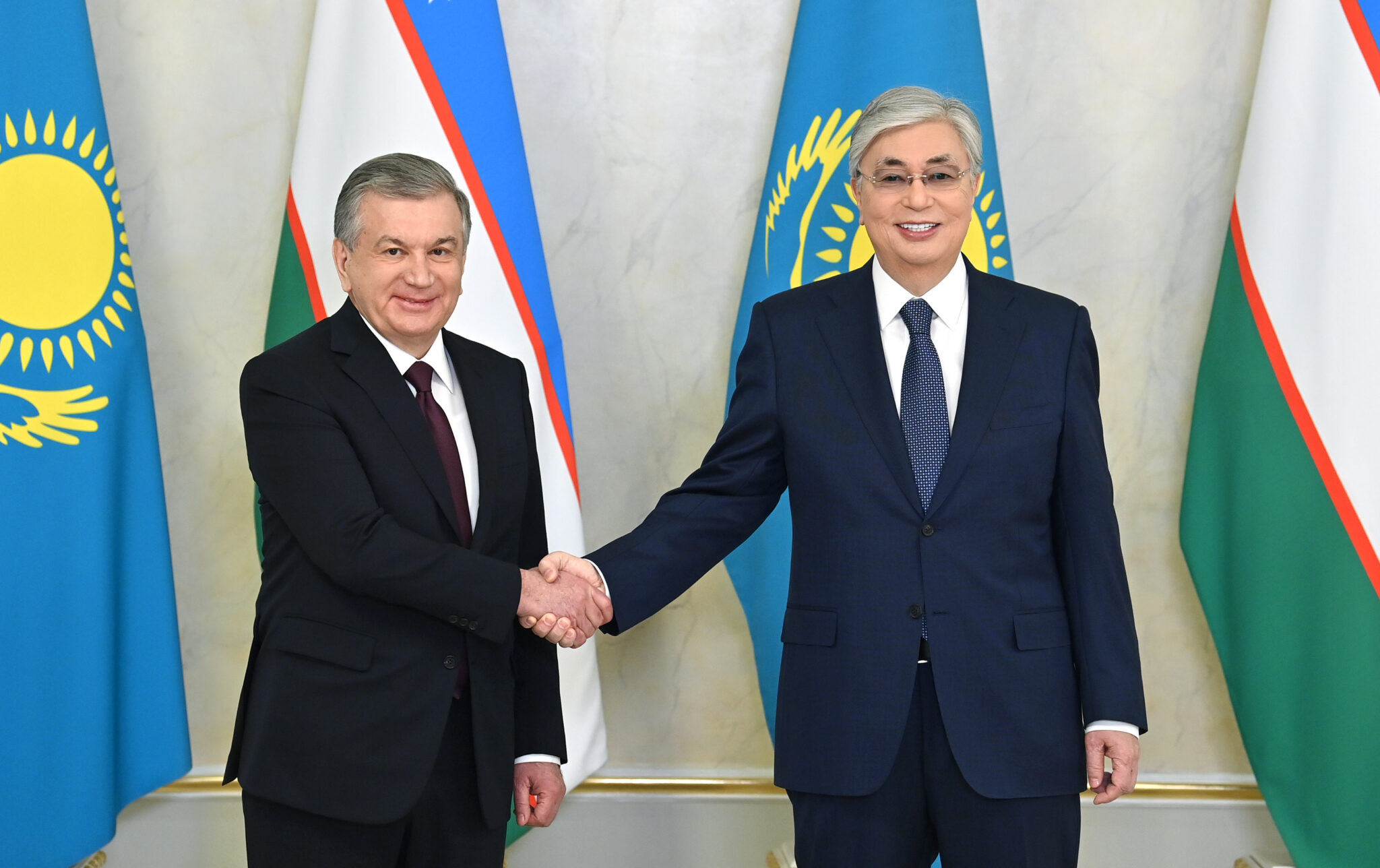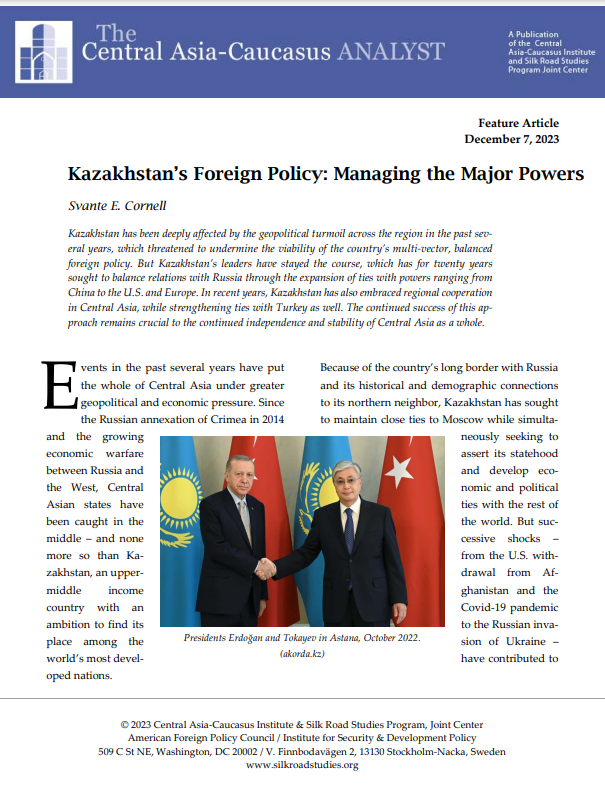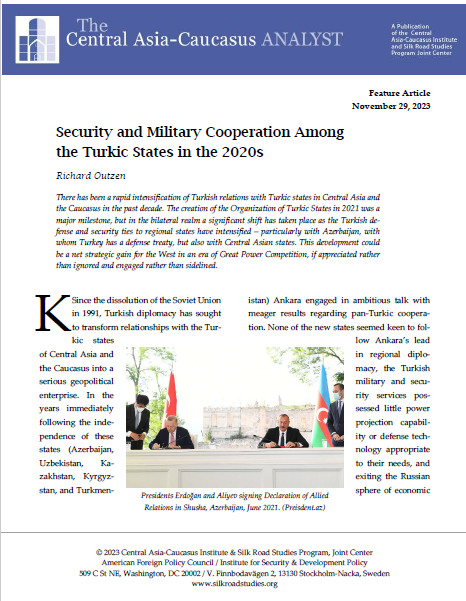Kazakhstan’s Foreign Policy: Managing the Major Powers
By Svante E. Cornell
December 8, 2023
Kazakhstan has been deeply affected by the geopolitical turmoil across the region in the past several years, which threatened to undermine the viability of the country’s multi-vector, balanced foreign policy. But Kazakhstan’s leaders have stayed the course, which has for twenty years sought to balance relations with Russia through the expansion of ties with powers ranging from China to the U.S. and Europe. In recent years, Kazakhstan has also embraced regional cooperation in Central Asia, while strengthening ties with Turkey as well. The continued success of this approach remains crucial to the continued independence and stability of Central Asia as a whole.
Security and Military Cooperation Among the Turkic States in the 2020s
Richard Outzen
December 8, 2023
There has been a rapid intensification of Turkish relations with Turkic states in Central Asia and the Caucasus in the past decade. The creation of the Organization of Turkic States in 2021 was a major milestone, but in the bilateral realm a significant shift has taken place as the Turkish defense and security ties to regional states have intensified – particularly with Azerbaijan, with whom Turkey has a defense treaty, but also with Central Asian states. This development could be a net strategic gain for the West in an era of Great Power Competition, if appreciated rather than ignored and engaged rather than sidelined.
Chessboard No More: the Rise of Central Asia’s International Agency
By Svante E. Cornell and S. Frederick Starr
October 3, 2023
Central Asia is often portrayed through metaphors such as a “Grand Chessboard” or a “Great Game,” which suggest that the players in the game are the great powers, and the Central Asian states are merely pawns in this game. This might have been a plausible argument thirty years ago. But today, thirty years into independence, it is abundantly clear that Central Asian states have agency at the regional and even global level.

Four Years On: An Update on Kazakhstan’s Reforms
Svante E. Cornell
October 24, 2023
Almost four years have passed since President Kassym-Jomart Tokayev embarked upon an agenda to bring thorough reforms to Kazakhstan’s politics and society. This article looks at the process of implementation of these reforms in a highly precarious geopolitical environment, where Russia’s war in Ukraine has led to increasing threats to Kazakhstan’s integrity by leading Russian figures. This analysis shows that Kazakhstan has proceeded on institutional reform, including modest but meaningful steps in sensitive areas such as separation of powers and electoral systems.

A New Spring for Caspian Transit and Trade
Svante E. Cornell and Brenda Shaffer
October 17, 2023
Major recent shifts, starting with the Taliban victory in Afghanistan and Russia’s war in Ukraine have led to a resurgence of the Trans-Caspian transportation corridor. This corridor, envisioned in the 1990s, has been slow to come to fruition, but has now suddenly found much- needed support. The obstacles to a rapid expansion of the corridor’s capacity are nevertheless considerable, given the underinvestment in its capacity over many years.





